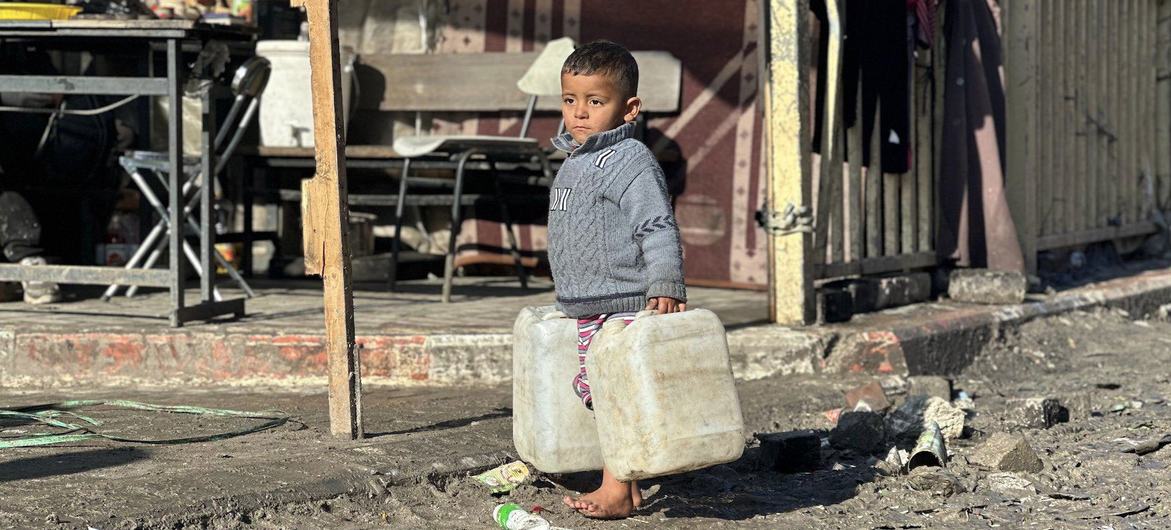PROMUEVE IMPORTANCIA DEL DESARROLLO TEMPRANO DE LOS NIÑOS

Foto: UNICEF/LeMoyne
Nueva campaña de UNICEF.
Por Laura Quiñones / Radio ONU.
Nueva York, miércoles 11 de enero de 2017.
UNICEF lanzó hoy una nueva campaña apoyada por la fundación LEGO, llamada #EarlyMomentsMatter (los primeros momentos son importantes), que busca aumentar la conciencia sobre la importancia de los primeros mil días de vida de un niño y el impacto de las experiencias tempranas para el cerebro en desarrollo.
A esa edad, las neuronas pueden formar hasta mil nuevas conexiones cada segundo, que contribuyen a su función cerebral y aprendizaje, así como a sentar las bases para su futura salud y felicidad. La falta de cuidados como una nutrición adecuada, estimulación, amor y protección contra la violencia y el estrés, puede impedir el desarrollo de estos importantes enlaces.
La campaña comienza con #EatPlayLove, una iniciativa digital e impresa dirigida a padres y a cuidadores de niños, que comparte de manera visual y directa la neurociencia de cómo se desarrollan los cerebros de los bebés para motivarlos a que jueguen con ellos y los estimulen cognitivamente.
El objetivo final de la estrategia es impulsar la demanda de servicios de desarrollo de la primera infancia asequibles y de calidad e instar a los Gobiernos a que inviertan en los programas dirigidos a los niños más vulnerables.
Según, la revista médica The Lancet, cerca de 250 millones de niños de países de desarrollo corren el riesgo de sufrir deficiencias debido al atraso y la pobreza. UNICEF estima que millones de niños en países más avanzados también están en riesgo al crecer en entornos poco estimulantes e inseguros.
#Earlymomentsmatter forma parte del programa de UNICEF para el desarrollo de la primera infancia.
Publicado originalmente por Rado ONU el 10 de enero de 2017.













